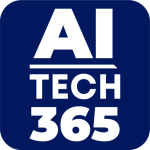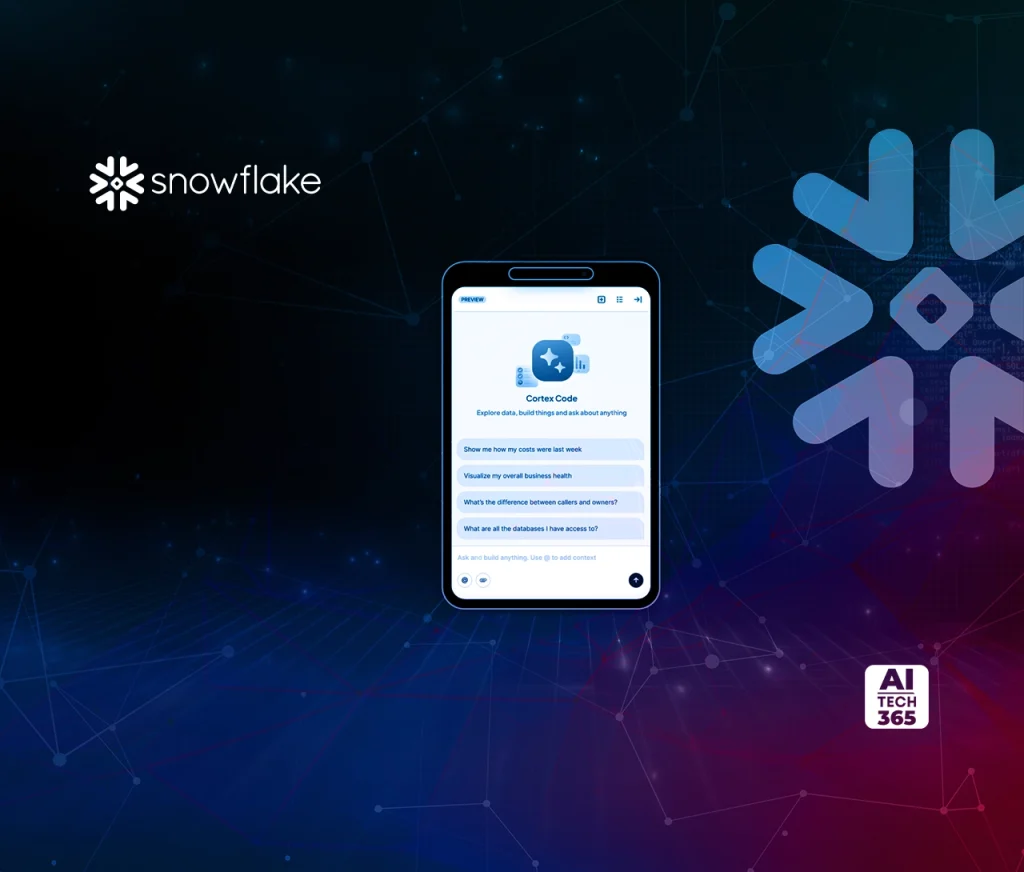Snowflake, the AI Data Cloud company, has announced a significant expansion of its developer tooling aimed at accelerating “agentic” AI applications that is, systems built to act autonomously or semi-autonomously, using data and embedded logic, beyond mere analytics.
In the press release, Snowflake highlights several new capabilities:
- A refreshed AI assistant in their UI called Cortex Code (in private preview) that allows developers to interact with their Snowflake environment using natural language.
- Enhancements to Cortex AISQL (now generally available) plus support for dynamic tables (also generally available) and a new “AI Redact” capability (public preview) for automatically detecting and redacting sensitive data in unstructured datasets.
- A unified collaboration environment called Workspaces (now generally available) which includes built-in Git integration, Visual Studio Code IDE integration, and support for existing tools like dbt and Apache Spark (via Snowpark Connect).
- Enhanced data-quality and code-security features to ensure trustworthy data and code governance.
Snowflake’s message is clear: the era of enterprise “agentic AI” autonomous data-driven applications and agents is gaining momentum, and they are building the developer stack to support that. For example: “With a single question, Snowflake Intelligence can facilitate deep research and suggest solutions … allowing users to move beyond the ‘what’ to the critical ‘why.’”
Implications for the DevOps Industry
For DevOps professionals and teams responsible for delivering software, data pipelines and value to business stakeholders, this announcement carries several concrete implications.
-
Shift-towards AI-native DevOps workflows.
Traditionally DevOps has been around continuous integration/continuous deployment (CI/CD) for software, infrastructure automation, monitoring, and feedback loops. But as agentic AI becomes more central, DevOps workflows will need to encompass data engineering, model deployment, autonomous agent orchestration, and prompt/agent lifecycle monitoring. Snowflake’s Workspaces (with Git, VS Code) and AI-native tooling signal a convergence of data-engineering/dev-ops/developer workflows. Teams will need to adapt their pipelines to include: data-pipeline CI, agent rollout/versioning, continuous monitoring of agent behavior, data-quality gates, and governance guardrails.
-
Reduced infrastructure complexity and faster time to value.
One of the key promises in the release is that teams can build, test and deploy AI-inference pipelines using declarative SQL (via AISQL) or existing Spark code on Snowflake’s platform, without stitching together disparate tools. For DevOps this means fewer moving parts: less custom plumbing, fewer infra hand-offs, and potentially fewer “toolchain integration bugs.” This frees up teams to focus more on logic, pipelines and business value rather than infrastructure choreography.
-
New responsibilities for reliability, monitoring and governance.
Agentic AI brings additional operational concerns: data quality, drift, unintended agent actions, compliance, security. Snowflake’s enhanced data-quality UI and code-security support are designed to help address this. DevOps teams will need to extend their monitoring: not just system health and latency, but agent outputs, data drift, governance metrics (e.g., how many tokens scrubbed, how many redactions done). The platform support aims to pull many of those operational needs into a unified environment.
-
Collaboration and tool-chain consolidation.
The release emphasises collaboration (Workspaces), developer productivity, Git and VS Code integration. For DevOps and developer teams this means a convergence of responsibilities: developers, data engineers, DevOps engineers, and data scientists may increasingly share the same environment, codebase, versioning, and release pipeline. Tool-chain fragmentation will become costlier; platforms like Snowflake positioning themselves as “one place” for data, AI, development and operations may reduce tool sprawl. That said, teams will still need to assess how much of the stack they trust to one vendor vs. best-of-breed.
-
Accelerated experimentation, but greater need for guardrails.
With capabilities like “Cortex Code” enabling natural-language interaction into the data environment, and declarative AI pipelines via SQL, the barrier to experimentation lowers. DevOps teams will need to keep up: faster iterations will demand faster feedback loops, automated testing (including for AI), and robust staging/prod separation. The faster pace of agentic-AI deployments amplifies risk if governance is weak. Hence DevOps must evolve to integrate AI-specific QA, auditing, traceability and rollback mechanisms.
Also Read: CoreWeave Acquires Marimo to Streamline GenAI Workflows
Impact on Businesses Operating in the DevOps Domain
For companies where DevOps is central (technology providers, SaaS firms, internal engineering organisations), this Snowflake announcement opens both opportunities and challenges.
Opportunities:
- Faster innovation cycles. Firms can build new AI agent-driven capabilities more quickly, thanks to the unified tooling. This accelerates time-to-market for agentic features: think intelligent assistants, autonomous workflows, smart data applications.
- Reduced operational overhead. By consolidating tooling and harnessing platform-provided infrastructure, organisations can lower total cost of ownership (TCO). Snowflake cites examples: “teams have achieved 5.6× faster performance and 41 % cost savings over managed Spark environments.”
- Better data compliance and governance baked in. With enterprise-grade features for data quality and security, business teams can build AI apps with more confidence in regulatory and risk-aware environments.
- Competitive advantage. Businesses that adopt agentic-AI early and build DevOps pipelines around it can differentiate: faster releases, smarter features, enhanced automation. As one quote in the release says: “We’re bringing secure, compliant data solutions to market faster, while eliminating data movement risks.”
Challenges:
- Skillset evolution. DevOps teams will need to upskill: understanding AI pipeline deployment, data-model operations, agent monitoring, natural-language/data-workflow interactions. Teams anchored only in classic software delivery may struggle.
- Complexity of agentic-AI risk. While tooling helps, the risk of unintended agent behaviors, data poisoning, model bias or security vulnerabilities remains. DevOps and governance functions must evolve to manage these.
- Vendor-lock concerns. While Snowflake emphasises open tooling and interoperability, organisations must judge how much to depend on a single vendor platform for development, deployment and operations.
- Cultural change. As the release indicates, the shift is from “writing code” to “building business context and semantic models.” That means DevOps and engineering organisations must adapt not just tactically but culturally to newer paradigms where analytics, AI, data, agents and operations converge.
Conclusion
Snowflake’s new developer-tool announcement marks a notable shift in the intersection of data platforms, agentic AI and developer/DevOps workflows. By offering integrated tools for collaboration, data pipelines, AI model/agent deployment, and governance, the company is signalling that the next frontier of DevOps is AI-native, autonomous, and data-driven.
For DevOps practitioners, the time to prepare is now: build pipelines that accommodate data ingestion, agent testing, monitoring and continuous deployment of intelligent workflows, not just code. For businesses with DevOps as a core capability, the opportunity lies in leveraging these advances to innovate faster, more securely, and at lower cost provided they can evolve their skills, processes and culture accordingly.
In short: the tools are advancing. The question is whether DevOps teams and organisations will shift gear and harness this next wave of agentic AI with confidence, speed and control.

